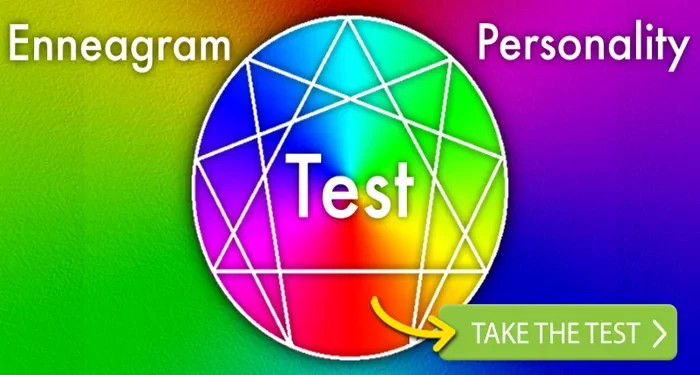The Enneagram is a powerful tool for self-discovery and personal growth. It is a system that categorizes human personality into nine distinct types, each with its own set of motivations, fears, and desires. Understanding your Enneagram type can provide profound insights into your behavior, relationships, and overall approach to life. But how do you find out which Enneagram type you are? This article will guide you through the process, offering detailed steps and practical advice to help you uncover your true Enneagram type.
What is the Enneagram?
The Enneagram is an ancient system of personality typing that has been used for centuries to help individuals understand themselves and others. The word “Enneagram” comes from the Greek words “ennea” (nine) and “gramma” (something written or drawn). It is represented by a nine-pointed diagram, with each point representing a different personality type.
The nine Enneagram types are:
- The Reformer: Rational, idealistic, and principled.
- The Helper: Caring, generous, and people-pleasing.
- The Achiever: Success-oriented, adaptable, and image-conscious.
- The Individualist: Creative, introspective, and self-aware.
- The Investigator: Analytical, perceptive, and innovative.
- The Loyalist: Committed, responsible, and security-oriented.
- The Enthusiast: Spontaneous, versatile, and fun-loving.
- The Challenger: Powerful, decisive, and self-confident.
- The Peacemaker: Easygoing, agreeable, and conflict-avoidant.
Each type has its own unique set of characteristics, strengths, and weaknesses. Understanding your type can help you navigate life more effectively and build stronger relationships.
Why Knowing Your Enneagram Type is Important
Knowing your Enneagram type can be a transformative experience. It can help you understand why you think, feel, and behave the way you do. It can also provide insights into your relationships, career choices, and personal growth. By understanding your type, you can:
- Improve Self-Awareness: Gain a deeper understanding of your motivations, fears, and desires.
- Enhance Relationships: Understand the dynamics of your relationships and improve communication.
- Achieve Personal Growth: Identify areas for improvement and work towards becoming the best version of yourself.
- Reduce Stress: Learn how to manage stress and anxiety by understanding your triggers and coping mechanisms.
Steps to Find Out Your Enneagram Type
Finding out your Enneagram type is a journey of self-discovery. It requires introspection, honesty, and a willingness to explore your inner world. Here are some steps to help you determine your Enneagram type:
Take an Enneagram Test
One of the easiest ways to start identifying your Enneagram type is by taking an online Enneagram test. There are many free and paid tests available that can give you a preliminary idea of your type. These tests typically ask you a series of questions about your behavior, preferences, and motivations. While these tests can be helpful, they are not always accurate. Use them as a starting point, but don’t rely solely on the results.
Read About Each Enneagram Type
Once you have a general idea of your type from the test, read detailed descriptions of each Enneagram type. Pay attention to the core motivations, fears, and desires of each type. Reflect on how these descriptions resonate with your own experiences and behaviors. It’s important to read about all nine types, as you may find aspects of yourself in more than one type.
Reflect on Your Core Motivations and Fears
The Enneagram is based on core motivations and fears. Take some time to reflect on what drives you and what you are most afraid of. For example, if you are motivated by a desire to be loved and accepted, you might be a Type 2 (The Helper). If you are driven by a fear of being inadequate or incompetent, you might be a Type 5 (The Investigator). Understanding your core motivations and fears can help you narrow down your type.
Consider Your Childhood Experiences
Your Enneagram type is often influenced by your childhood experiences. Think about your early years and how you interacted with your family, friends, and environment. What were your coping mechanisms? What did you value most? Reflecting on your childhood can provide clues about your Enneagram type.
Observe Your Behavior in Different Situations
Pay attention to how you behave in different situations, especially under stress. Each Enneagram type has a unique way of responding to stress and challenges. For example, Type 6 (The Loyalist) may become more anxious and seek reassurance, while Type 8 (The Challenger) may become more confrontational and assertive. Observing your behavior in various contexts can help you identify your type.
Seek Feedback from Others
Sometimes, it can be difficult to see ourselves objectively. Ask trusted friends, family members, or colleagues for their observations about your personality. They may provide insights that you haven’t considered. Be open to their feedback and use it as a tool for self-discovery.
Explore Your Wings and Subtypes
Each Enneagram type has “wings,” which are the types adjacent to your primary type on the Enneagram diagram. For example, if you are a Type 4 (The Individualist), your wings could be Type 3 (The Achiever) or Type 5 (The Investigator). Your wing can influence your behavior and add complexity to your personality. Additionally, each type has three subtypes based on instinctual drives: self-preservation, social, and sexual. Exploring your wings and subtypes can provide a more nuanced understanding of your Enneagram type.
Engage in Self-Reflection and Journaling
Self-reflection is a key component of discovering your Enneagram type. Take time to journal about your thoughts, feelings, and behaviors. Write about your core motivations, fears, and desires. Reflect on your relationships, career, and personal growth. Journaling can help you gain clarity and insight into your Enneagram type.
Consult with an Enneagram Expert
If you’re still unsure about your Enneagram type, consider consulting with an Enneagram expert or coach. They can guide you through the process and help you gain a deeper understanding of your type. An expert can also provide personalized insights and recommendations for personal growth.
Be Patient and Open-Minded
Discovering your Enneagram type is not always a straightforward process. It may take time, patience, and an open mind. Be willing to explore different aspects of your personality and consider that you may not fit neatly into one type. The Enneagram is a dynamic system, and your understanding of your type may evolve over time.
Common Misconceptions About the Enneagram
As you explore the Enneagram, it’s important to be aware of some common misconceptions:
- The Enneagram is Not a Label: The Enneagram is not about putting yourself in a box or limiting your potential. It’s a tool for self-awareness and growth.
- You Can Change Types: Your Enneagram type is not fixed. While your core type remains the same, you can develop traits of other types as you grow and evolve.
- The Enneagram is Not a Religion: While the Enneagram has spiritual roots, it is not tied to any specific religion or belief system. It can be used by people of all faiths and backgrounds.
- The Enneagram is Not a Personality Test: Unlike traditional personality tests, the Enneagram focuses on core motivations and fears rather than surface-level traits.
How to Use Your Enneagram Type for Personal Growth
Once you have identified your Enneagram type, you can use this knowledge to enhance your personal growth. Here are some ways to apply the Enneagram in your life:
- Self-Acceptance: Embrace your strengths and weaknesses. Accept yourself as you are, while also striving for growth.
- Improve Relationships: Understand the Enneagram types of those around you. This can help you communicate more effectively and build stronger relationships.
- Manage Stress: Learn how your type responds to stress and develop healthy coping mechanisms.
- Set Goals: Use your Enneagram type to set meaningful and achievable goals that align with your core motivations.
- Practice Mindfulness:Stay present and aware of your thoughts, feelings, and behaviors. Mindfulness can help you break free from automatic patterns and make conscious choices.
Conclusion
Discovering your Enneagram type is a journey of self-discovery that can lead to profound personal growth. By taking the time to explore your motivations, fears, and behaviors, you can gain a deeper understanding of yourself and others. Remember that the Enneagram is a dynamic system, and your understanding of your type may evolve over time. Be patient, open-minded, and willing to explore the complexities of your personality. With this knowledge, you can navigate life with greater self-awareness, compassion, and purpose.
Related topics:
How to Determine Your Enneagram Type?
What are the 9 enneagrams: Things You Need To Know
A Comprehensive Guide on How to Determine Your Enneagram Number





















